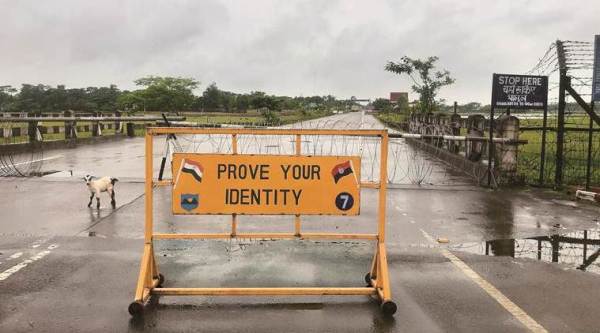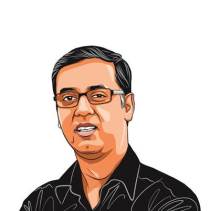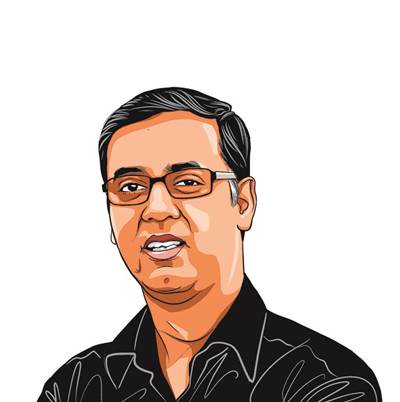Just one citizen
Even one unfair exclusion in the National Register of Citizens is one too many

The second and final draft of Assam’s NRC will be released on Monday.
Shillong, 1979. I was in the 6th standard. That was the first time I was called a “dkhar” or an “outsider”. It was a slur. Not much has been written about the “anti-outsider” movement in Meghalaya, a spillover of the Assam agitation that was a mass movement against illegal migrants from Bangladesh. Whatever the motives were, I suffered humiliation. Hundreds of others suffered a fate worse than mine. What continued was a decade of ethnic cleansing.
There have been numerous occasions when I was abused, heckled and threatened. We learnt how to fight these battles. One day in mid-June, I was exiled from my hometown. My parents continued to live there till their 50th marriage anniversary.
I was born in Gauhati (now Guwahati), Assam in 1969. My parents were residing in Shillong, the then capital of Assam to be soon part of a new state, Meghalaya. Much later, I would return to Assam to work as a journalist for a television network. I spent a decade covering the region’s tumultuous years.
Recently, when the exercise of updating the National Register of Citizens in Assam picked up steam, I applied for “citizenship” to understand the process that was under a shadow of suspicion and apprehension. At the time of application, I wasn’t living in Assam but had adequate proof of my ancestry there. Or so I imagined. I was told, each applicant must upload a “legacy document” that would prove that either the applicant or her/his father voted in India before 1971. I asked my father, a historian, whether he voted and he said yes but obviously he wasn’t carrying any proof of that. The government uploaded this data for people to locate proof. My father’s name was missing from the relevant electoral rolls. This was the case of the 40 lakh now delisted persons. Producing documentation of this nature by most citizens is a nightmare.
Just by accident, my father dug out a certificate from the 1950s signed by a gazetted officer verifying him as a bonafide Indian citizen. Under the NRC clauses, this appeared to be the only proof of my claim to be an Indian citizen. While it worked for my sister working as a doctor in Assam, in the first round of verification they rejected my father, my daughter (born in Delhi) and me. The NRC office from Zoo Road, Guwahati, wanted me to go and present myself along with my daughter. I was basically summoned. I explained to them my inability to travel from Delhi. Regarding my father, they argued that he worked in Shillong and therefore had no right to claim citizenship in Assam. My mother, however, was already on the rolls. A couple of months later when the draft was actually published, my daughter and my name were there. My father has been delisted.
As per the Assam Accord, all residents of Assam who entered the state till January 1, 1966, would be “regularised”. Those who entered between 1966 and March 25, 1971, could not vote for the next 10 years, and those who came after the midnight of March 24, 1971, would be “detected, deleted and expelled in accordance with law”. My father was born in undivided Assam, shifted to present-day Assam in 1947 and is in possession of a Citizenship Certificate. But his citizenship is in question. How can the same piece of paper that grants his children citizenship deny him the right? This is not mere oversight.
The issue of citizenship is intractable. Apart from the Constitution, there exist a whole lot of laws like the Foreigners’ Act 1946, the Passport Act 1952, and the Citizenship Act of 1956. The rules are a maze of complexities.
This 40 lakh is a vindication of sorts for the Assamese nationalist groups like the AASU who have fought a long battle against illegal immigration morphed often into anti-Bengali and anti-outsider xenophobic campaigns. The erroneous claim of the “indigenous” and “original” inhabitants of Assam is the pivot of this movement.
It now appears that majority of this 40 lakh may find themselves in the final list if ever there is one. Till then, the anxiety of a genuine citizen to claim her/his rights is something that the state may not be concerned about. There are reportedly many Assamese names that have been left out but given their “original” inhabitant status they are perhaps not as anxious as the other communities, particularly the Bengalis. The racial profiling of Bengalis as Bangladeshis has been going on since 1947. The fact that a Bengali has written this will also be seen as somewhat biased.
As a Bengali in the Northeast, I think I have been far too apologetic. But the facts must be stated and rights claimed. It would be a travesty of justice even if one genuine citizen were left out of the list.
The writer teaches journalism in O P Jindal Global University and is author most recently of An Unfinished Revolution: A Hostage Crisis, Adivasi Resistance and the Naxal Movement
For all the latest Opinion News, download Indian Express App
More From Kishalay Bhattacharjee
- Anatomy of a fake encounterCRPF officer’s revelation frames a practice unfortunately routine in Assam...
- The semantics of lawlessnessBhopal’s ‘encounter’ mirrors a wider culture of impunity...








































No hay comentarios:
Publicar un comentario